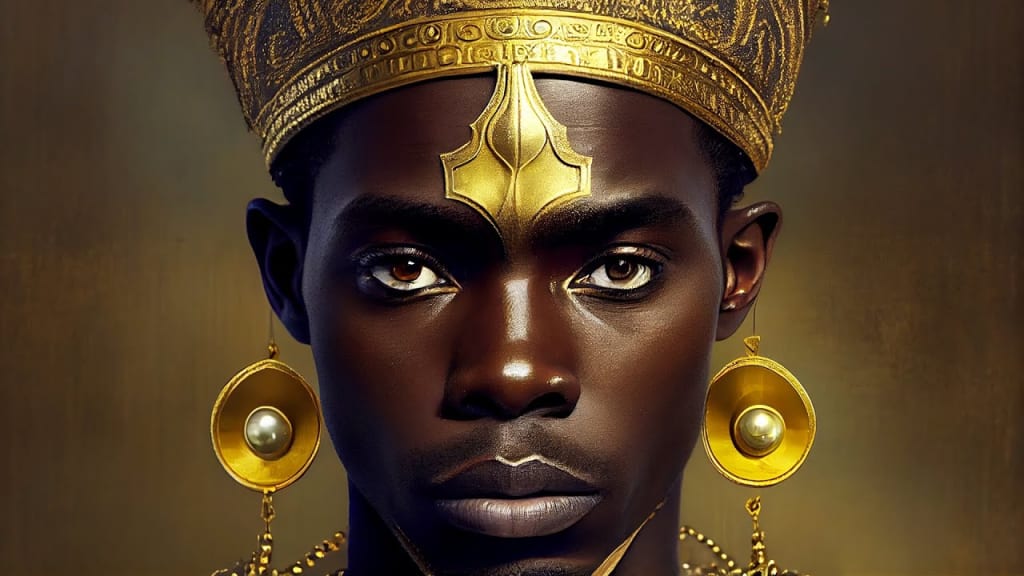Mansa Musa: The Richest Man in History Whose Wealth Transcended Time
The Unfathomable Fortune and Generosity of Mali Empire's Sultan

Mansa Musa: The Richest Man in History Whose Wealth Transcended Time
Subtitle: The Unfathomable Fortune and Generosity of Mali Empire's Sultan
Introduction
According to Forbes, Amazon owner Jeff Bezos was once regarded as the richest man in the world, with a staggering fortune of approximately 177 billion dollars. However, compared to Mansa Musa, the 14th-century sultan of the Mali Empire, Bezos' wealth pales in comparison. Adjusted for inflation, Mansa Musa's fortune was estimated to be more than twice the size of Bezos', Elon Musk's, Mark Zuckerberg's, Warren Buffet's, and Jack Ma's combined. Despite his significant historical financial standing, Mansa Musa remains relatively unknown today. This article delves into the life and legacy of Mansa Musa, shedding light on the unimaginable wealth he possessed and his remarkable acts of generosity.
The Mali Empire and Its Rise to Power
The Mali Empire, situated in Western Africa, reached its zenith during the 14th century, covering almost half a million square miles and hosting around 5% of the world's population. Its rapid rise was fueled by unprecedented wealth derived primarily from two resources abundant in the region: gold and salt. In fact, three gold mines in Mali accounted for half of all the gold in the Old World (Europe, Africa, and Asia) at the time. While gold's allure might be expected, salt also played a crucial role as a highly valuable commodity due to its essential role in human nutrition and food preservation, especially in regions where it was scarce.
Mansa Musa: The Sultan of the Mali Empire
Mansa Musa, born around 1280 AD, ascended to the throne of the Mali Empire in approximately 1312 AD. His path to rulership was unexpected, as he was initially appointed as a temporary ruler after his predecessor embarked on an ambitious voyage across the Atlantic Ocean. However, the previous emperor and his fleet were never seen again. Mansa Musa took the opportunity to solidify his rule and expand the borders of the empire, further enriching his already vast wealth.
The Extraordinary Journey to Mecca
As a devout Muslim, Mansa Musa embarked on the Hajj, a significant pilgrimage to Mecca, which is one of the pillars of Islam. However, his pilgrimage became one of the most extraordinary journeys in human history. Accompanied by an entourage consisting of 60,000 men and women, 100 elephants, 80 camels, and a personal guard of 500 highly trained warriors, Mansa Musa set off on a 2700-mile expedition. In addition to the caravan's immense size, Mansa Musa carried an astounding 21,000 kilograms of gold, along with significant amounts of gold dust used as currency within his kingdom.
Generosity and Impact
Contrary to what one might expect from the richest man in history, Mansa Musa's intentions were not solely self-serving. His pilgrimage became an opportunity for immense acts of generosity and philanthropy. He distributed so much gold to the poor along the way that it caused a decade-long recession, leading to a significant drop in the price of gold in North Africa and the western Arabian peninsula. Mansa Musa also sought to spread his beliefs, and as a result, he ordered the construction of a mosque every Friday during the entire pilgrimage, spanning nearly two years.
The Cultural and Economic Impact
Mansa Musa's journey to Mecca not only showcased his immense wealth but also garnered significant attention and admiration. As a result, both Mansa Musa and the Mali Empire began to appear on world maps, including the influential Catalan Atlas of the 14th century. The pilgrimage also.
The pilgrimage also established Mali as a prominent center of Islamic learning and scholarship. Mansa Musa brought back scholars, architects, and artists from the Middle East, contributing to the cultural flourishing of his empire. Additionally, the extensive trade networks that Mansa Musa fostered during his journey further bolstered the economic strength of Mali. His lavish spending of gold in Cairo and other cities left a lasting impression on the economies of these regions. Mansa Musa's legacy endures through the architectural marvels he commissioned, such as the great Djinguereber Mosque in Timbuktu, which stands as a testament to his wealth, generosity, and impact on Mali and the wider world.
About the Creator
Enjoyed the story? Support the Creator.
Subscribe for free to receive all their stories in your feed. You could also pledge your support or give them a one-off tip, letting them know you appreciate their work.





Comments
There are no comments for this story
Be the first to respond and start the conversation.